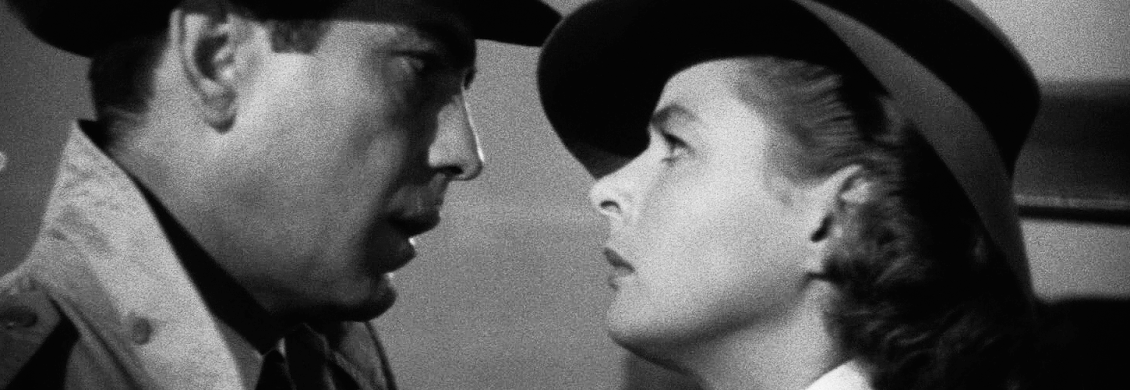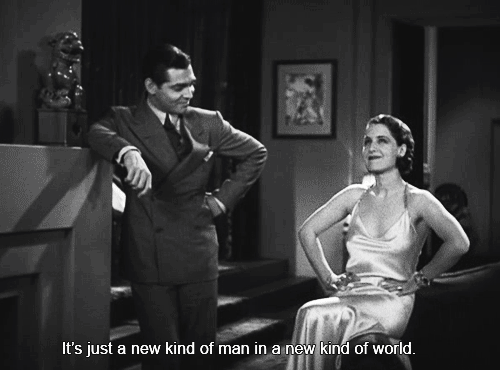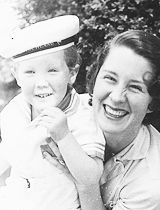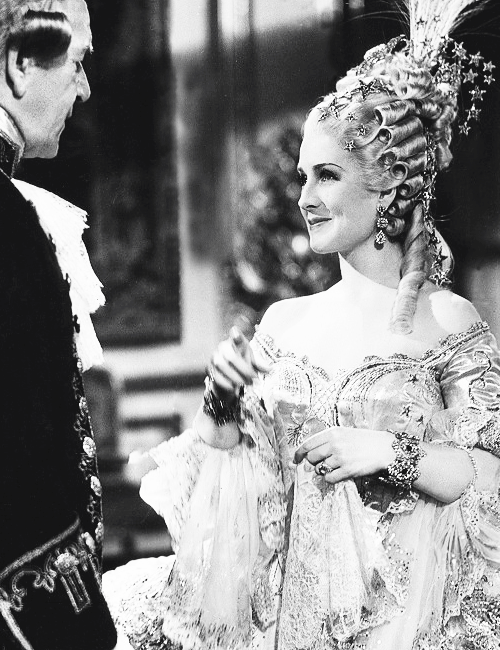"Bapuji said leave the village, everybody said leave Paro, Paro said leave alcohol. Today, you said leave home. One day he'll say, leave the world."
I think everybody knows what kind of movies I am talking about: there are some movies you love with a passion and after watching them, you could talk about them or analyse them for days on end. Yet, you don´t watch them very often because they are too special, too precious for that. You don´t want to spoil them by watching them every day, but still you always get the urge to do so after seeing them again. Sounds familiar? I thought so.
To me, Devdas is such a film. I re-watched it today and felt the great urge to write about it and here we are. The film is an intense love story (intense is the perfect word for this film), a film about relationships, loss, the human nature and the downfall of a man.
And if you´ve never seen a Bollywood film, this movie is the perfect introduction for you. Go, treat yourself, get the movie and enjoy it. But a warning: the film is beautiful in a heart-breaking way. It will leave you shattered to pieces and you will love it.
Before I try to put all my feelings and thoughts on "paper" and in coherent sentences, some facts:
Devdas is a 2002 movie directed by Sanjay Leela Bhansali based on the 1917 novella by the same name, starring three of the most gorgeous and most gifted stars: Shah Rukh Khan, Aishwarya Rai Bachchan and Madhuri Dixit. It was a box-office hit in India in 2002, won the Filmfare Award for Best film and was India's official entry in the foreign-language film category of the 2003 Academy Awards, but did not receive a nomination (it should have though, it should have won). It was also nominated for the BAFTA Award for Best Foreign Language Film. Time Magazine listed the film in the list of the Top 10 best films in 2002 [source].
But enough with how many times the film was nominated, and how great it is. What is it about?
(I try to keep the spoilers at a minimum)
 |
| ill-fated lovers |
Devdas Mukherji (SRK), a slacker, but a sensitive and talented young man, is coming home from studying law in London after being abandoned and shipped off by his father 10 years prior. The family is overjoyed and shares the great news with their neighbors with whom they have been very close with. The neighbors' daughter Paro (later Parvati) and Devdas used to be best friends during childhood days. So, one can imagine who Devdas is going to see first after arriving: Paro - which sets off his mother (and makes her jealous). Paro (Aishwarya Rai Bachchan) has grown into a beautiful, confident woman who had been counting the days since Devdas departure, waiting for him to come back again. The childhood friendship turns into a deeply-felt love and both are naive enough to believe that Devdas' tyrannic father would allow them to be together and get married. Well, he doesn´t (he sees the reputation of the family endangered since Paro's family is from a lower caste).
Devdas leaves the family's house and seeks refuge in a brothel where an old friend now lives. After not standing up to his father, he makes the second fatal mistake that will eventually put everything into a down-ward spiral. He sends his great love a letter falsely stating that there was never love between them and that she should forget about him. He later realizes his mistake, but it´s too late. The letter put the final nail into the coffin of Paro and Devdas' living happily ever after. She marries a considerably older man of wealth (a widower who has three almost-adult children already and states that she will never have the same regard in his eyes like his first wife had).
 |
| Will Chandramukhi be able to save him? |
With Paro unreachable now, his life seems like a mere shadow of the life he must have been leading back in London. He takes on drinking and becomes a womanizer, with only one thing on his mind: Paro. It's all he can think about - he lives on the memories of their ill-fated love.When going to his lawyer friend he meets with a courtesan, Chandramukhi (Madhuri Dixit). She falls in love with him, but he resists her for a long time. She, however, would sacrifice everything she has for him and his happiness. She is the heart and soul of the story, sees the longing he has for the other woman, but still keeps on giving him harbor. Eventually and very gradually he ends up falling in love with her also, thus getting her a bad reputation. The alcohol has taken its toll by now and it seems that everything is lost for him....
Why is this film so special and why should you watch it?
1. For cinematography reasons, the stunning dances, the colors etc.
 |
| Dola Re Dola [gif source] |
You honestly have to see for yourself. But to make things a little easier for you: You don´t get such a overall perfect film every day. Yes, the film is visually stunning, the cinematography is fantastic, the story is heart-breaking, the dances and the songs are divine and nothing but perfect. The film is more like a poem, an ode to love and what it can do to you, than just a movie. There is symbolism in everything beginning with the oil lamp Paro lights for Devdas, up to the matching dresses of both Paro and Chandramukhi during their iconic "Dola Re Dola" dance (or in this scene). All the colors, the dances, the songs, the dialogues will suck you into this world of that film and you will forget everything around you (for 3 hours at least). But the one thing that makes it so special for me, is the acting; by every single actor of the cast.
2. For the actors and their stunning performances
 |
| Give that man all the awards for this performance |
The three leading actors are some of the biggest stars of their time and every single one of them (and the supporting cast as well) are nothing but brilliant. There is no other word to describe the performances. It doesn´t surprise me, that all three of them won awards for their respective roles.
Shah Rukh Khan plays the role of Devdas with such an intensity that you are being left in awe and and you just want to jump into the film and set things right. Devdas is a troubled and very complex character. He is this kind of braggy guy when he arrives from London, but it turns out that he is a very sensitive man who who wanted nothing more than being accepted and loved by his father. Living heaven on earth for a very short time, being able to be himself, the funny, charming and loving Devdas, he very soon turns into the bitter version of himself who feels rejected and unloved by everyone and his only refuge is alcohol. You have to see for yourself to know what I mean when I say that this movie shows once again why Shah Rukh Khan is the king of Bollywood. This was one of the most daring, intense and best performances I have seen by an actor so far. And he never ceases to amaze you with it.
 |
| As beautiful as the moon but also just as sad |
Aishwarya Rai Bachchan is stunning. Outside India she is probably known for being the most beautiful woman today, but she is much more than that. She is a very gifted actress who plays her role as Paro with such dedication. You really get the feeling that this stunningly beautiful woman who is vain, proud and so full of love would also have gone to the end of the world for Devdas. But she simply had all cards set against her. She is the moon, while he is the sun. Lovers that are never be meant to be together. And you really want her to be happy. She is overwhelmed by everything when Devdas' letter arrives and it´s like she is a girl whose whole world has collapsed and has no idea where to go, what to do and who to lean on (besides her mother). She is a very fragile person and gets thrown into a life she never wanted but now is forced to live. And she is so strong and tries her best to make the best out of things.
 |
| This will be you at the end of the movie |
Madhuri Dixit's Chandramukhi is the heart and soul of the movie. We all know what a divine dancer she is, that she is considered to be one of the best dancers nowadays, if not even one of the best dancers of all time, but she is just as wonderful as an actress and in this film she can show both of those talents. She plays this incredibly fascinating and strong woman who knows her power and falls in love for the first time - in a way that leaves you in awe almost as much like it does with Shah Rukh Khan. She is a woman who has chosen a profession she most probably did not choose voluntarily. She is very good at what she does. One day something happens to her she never thought possible. She falls in love with someone, so deeply, that she wants to do anything in her power to help him. We see her suffer for the man of her heart, see how he treats her and her reactions. We know that she is someone who is supposed to be cool when it comes to emotions, but we see how she is so not cool with her feelings for Devdas. We see behind that gorgeous façade, for the person she really is. She is yearning for love just as much as Devdas is. She just as lonely. Madhuri Dixit plays the role with such conviction that you end up catching yourself looking forward (almost waiting) to her scenes.
4. For the story and the overall theme
The film is about undying and infinite love, a love of a man for a woman, unrequited love, but it´s also about hatred and greed. How does one manage if the one true thing in life you live for is the one thing you cannot have? How do you handle emotions for a person who doesn´t care about you? Is it possible for a man to hate as much as he loves? Can you ever get over a love you felt so deeply that you thought you have to die? This combined with the vivid colors of the film and the songs that were written with special purpose (it took 2.5 years to compose them, so you can imagine all the work and also the love for detail in this film) really sets this story about the love triangle between Devdas, Paro and Chandramukhi apart from other movies.
Is there anything negative about the movie (at all)?
Let me think......umm.... no. There isn´t. Ohh okay, there is one thing. The only bad thing about this film is the fact that in 2014 this film still hasn´t got a Blu-Ray release (at least where I live), which is a crime. The DVD quality could be better and a lot of people are yearning for a BD version of this movie and it would kill you. It would honestly blow your mind with its beauty. We can only hope that one day soon we will get it in such a quality.
If that got you intrigued, here is the trailer:
That said, what are you waiting for? Go watch the film! And get handkerchiefs and don´t blame me when you are a mess at the end. I warned you.
Notes:
- Devdas on imdb
- Screencaptures & editing by me
- Another review I liked
- Get Devdas on amazon.com






